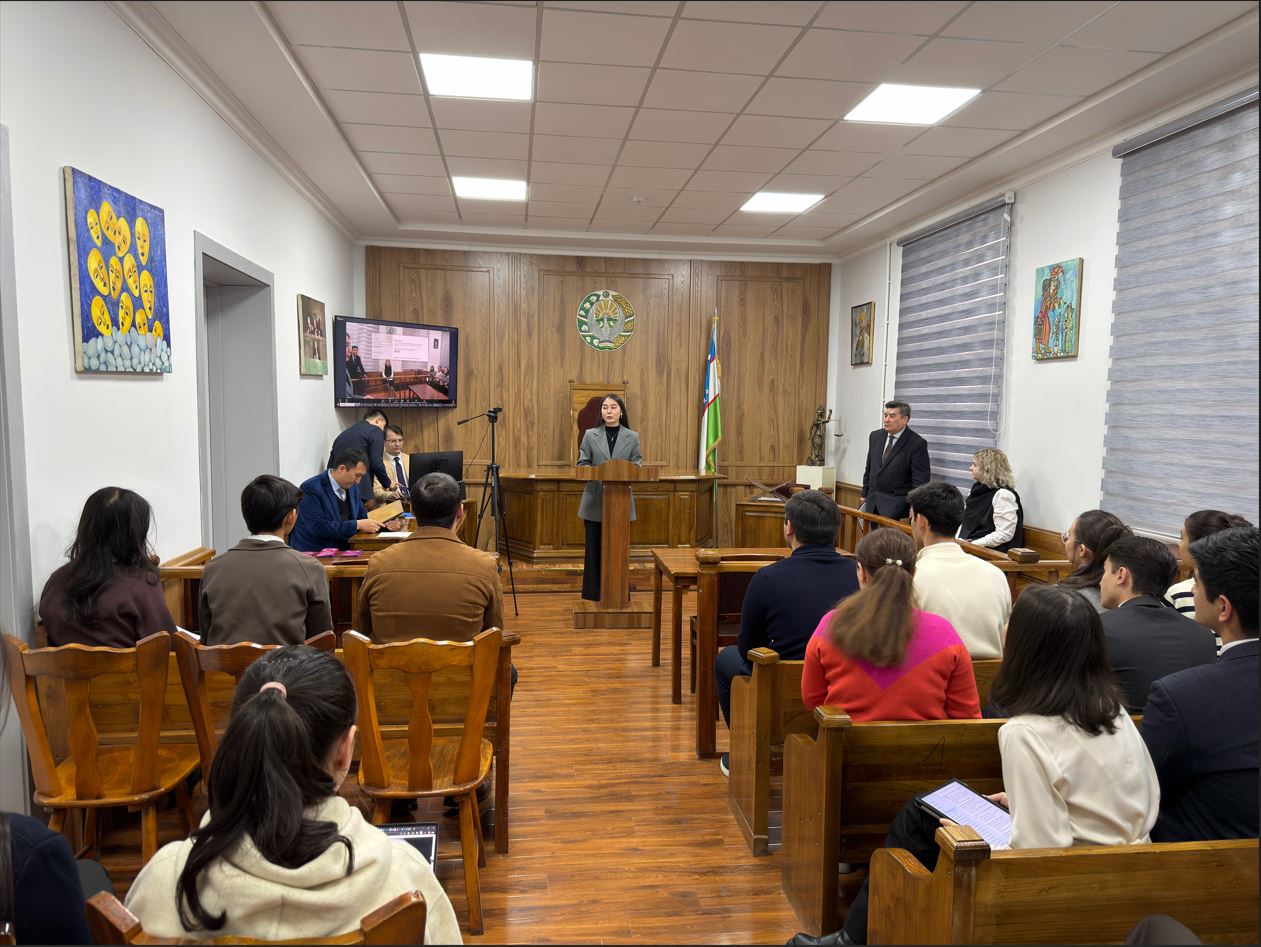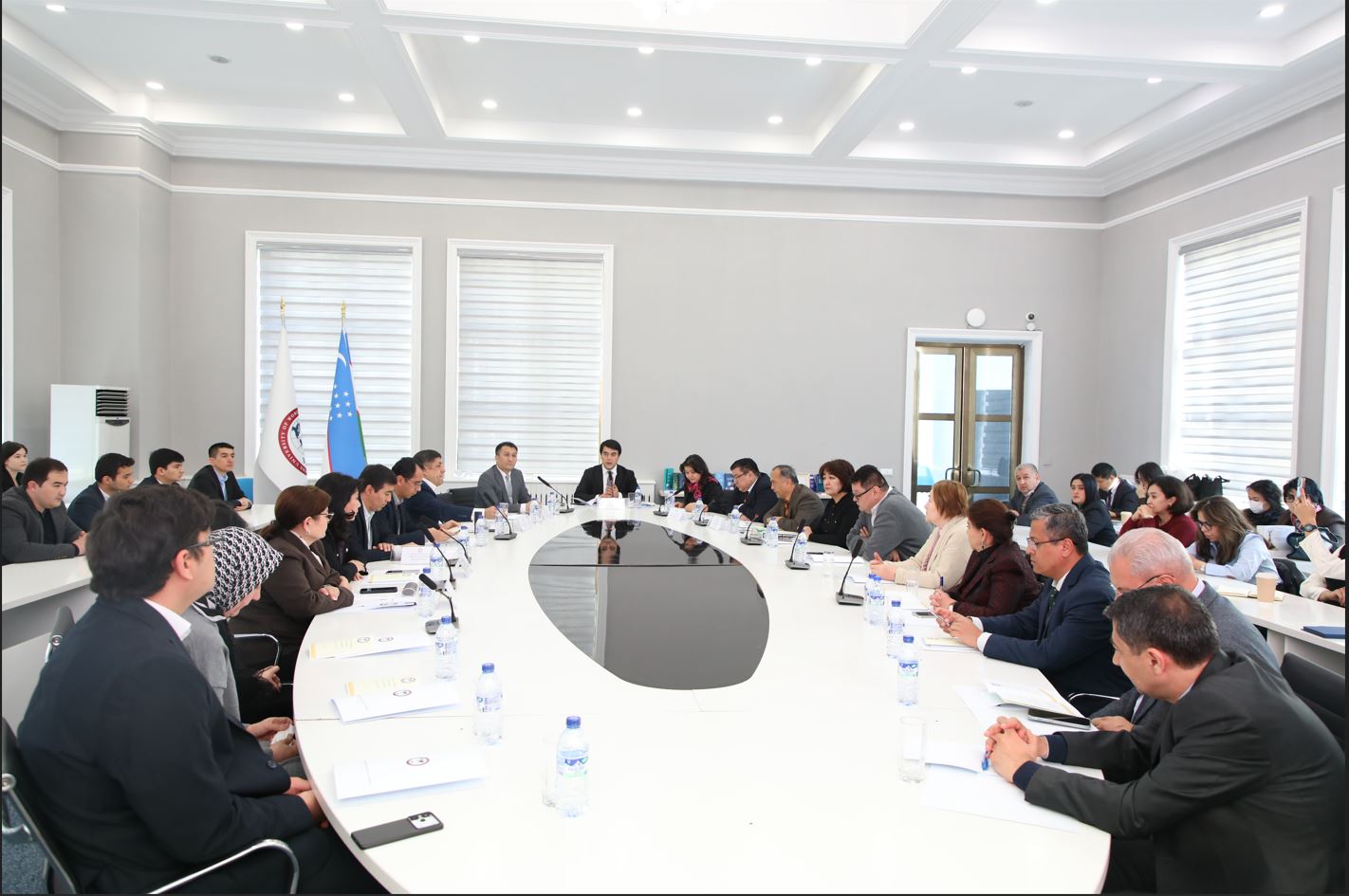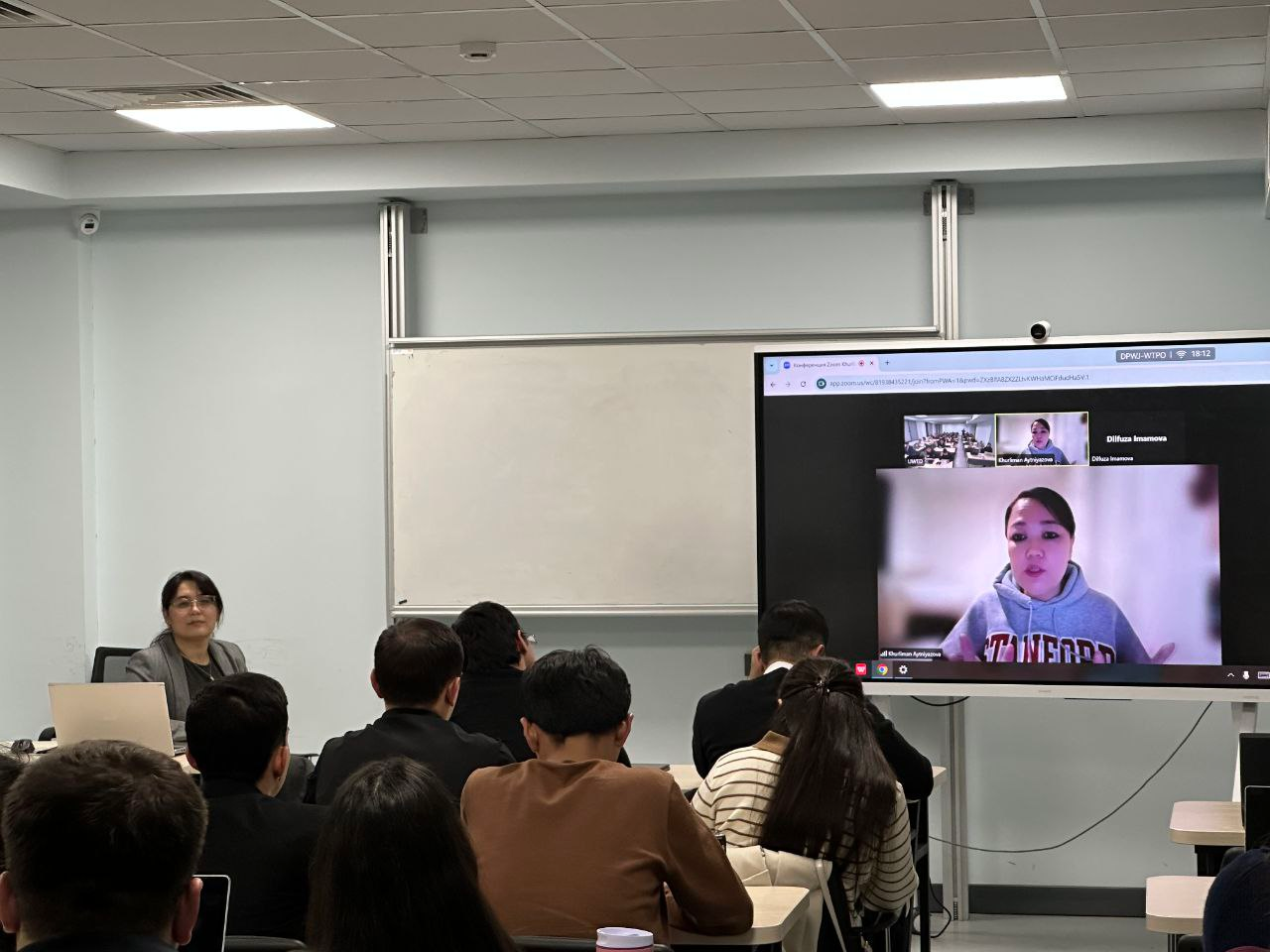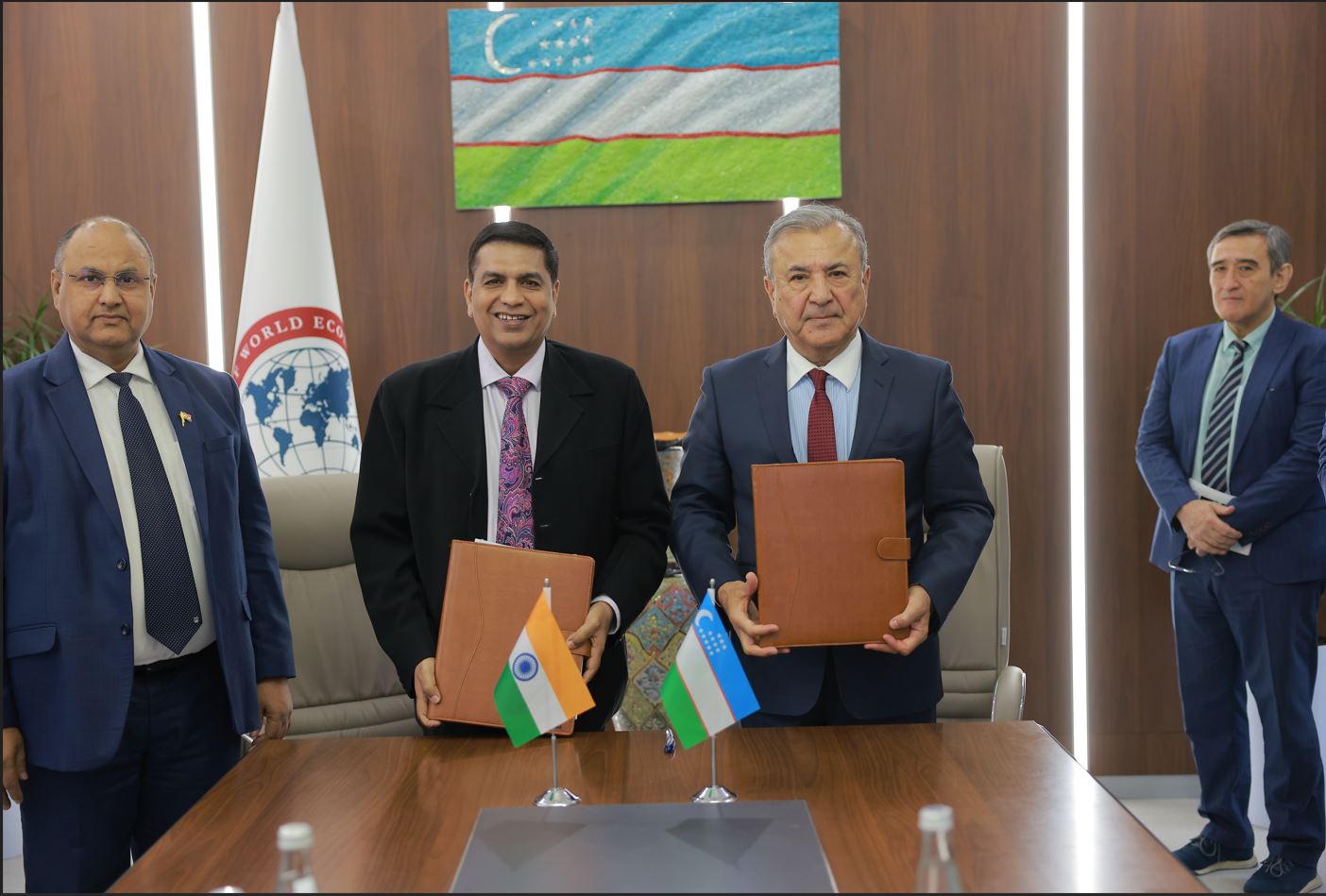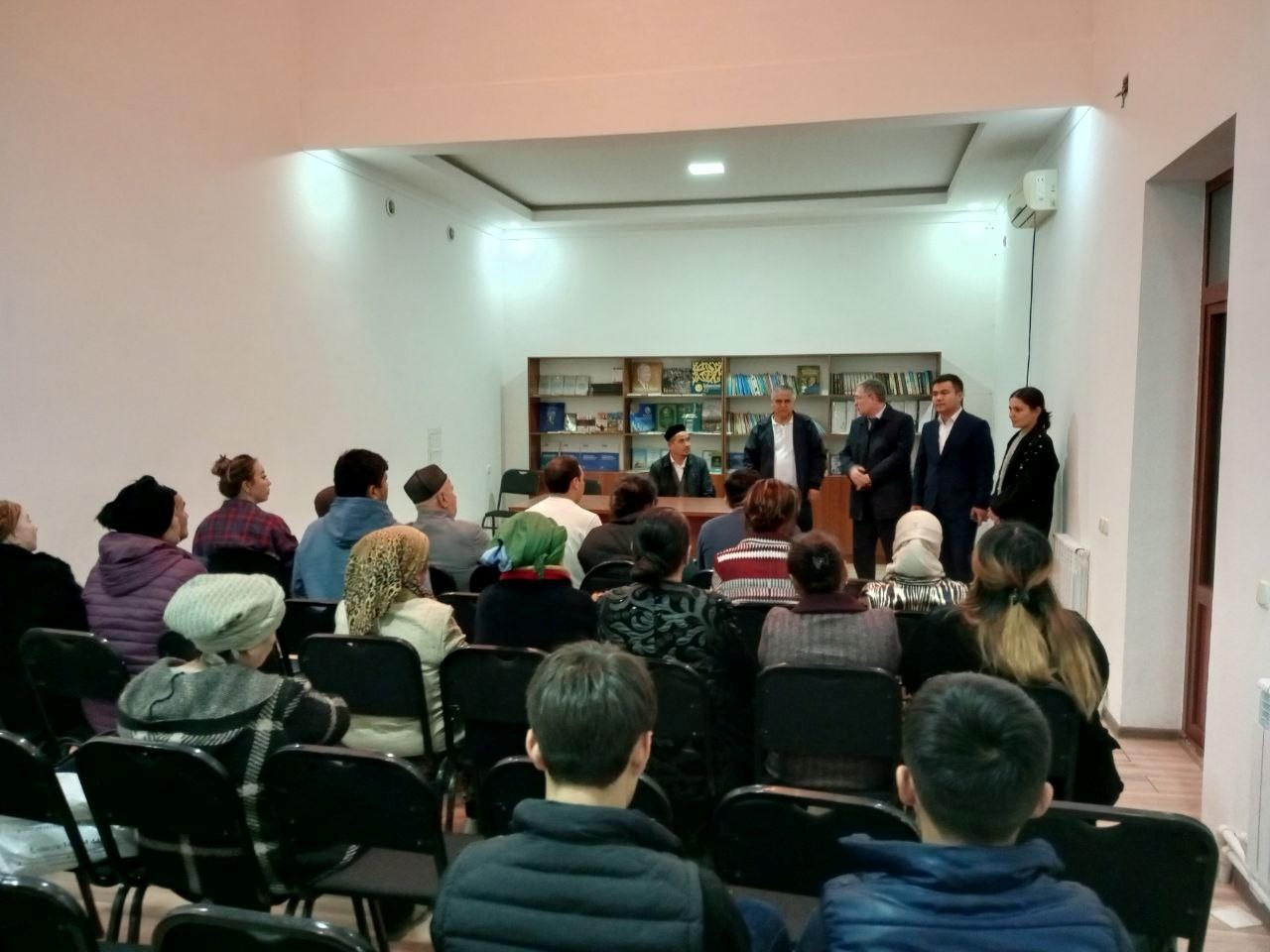
The system of obligations in the civil law of the Republic of Uzbekistan, their importance and relationship with other branches of law was discussed at the UWED
The system of obligations in the civil law of the Republic of Uzbekistan, their importance and relationship with other branches of law was discussed at the UWED
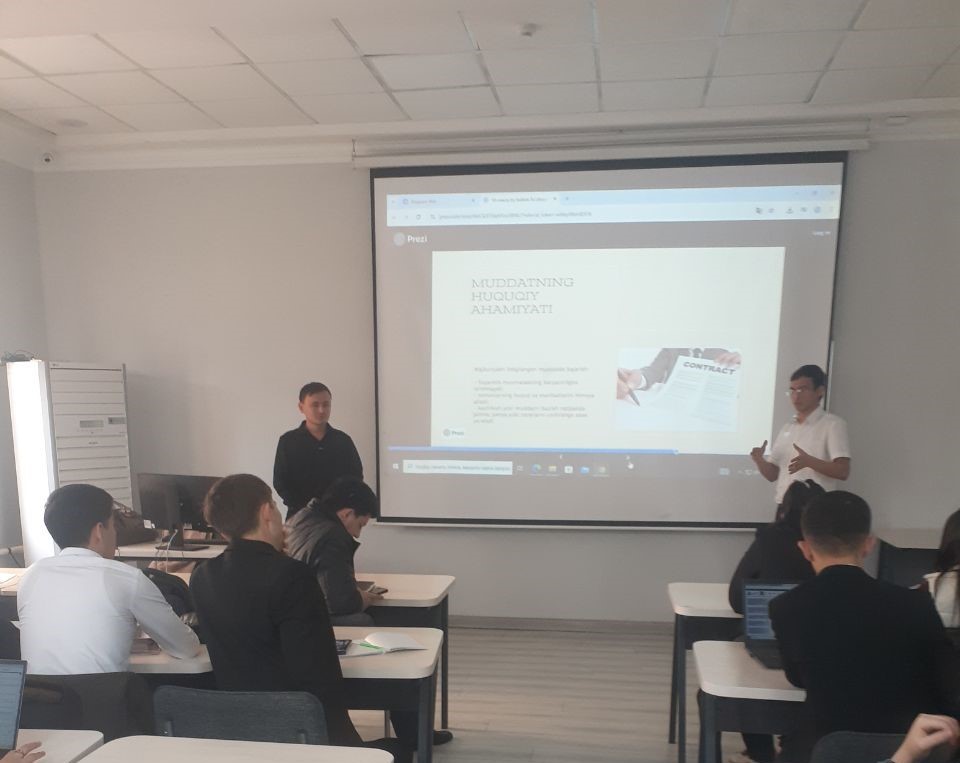
Diplomacy hosted a master class titled “The emergence of obligations in the civil law of the Republic of Uzbekistan, their significance and their relation to other branches of law”.
The event was attended by Asilbek Ruziboev, assistant attorney at the “Baxronov Consult” law bureau in Tashkent, Akobir Sadullayev, assistant to a judge of the inter-district economic court of Tashkent, members of the Department of civil law and international private law disciplines, as well as second-year students of the faculty of International law.
During the master class, the assistant attorney from the “Baxronov Consult” law bureau in Tashkent and the assistant to a judge of the Tashkent inter-district economic court, together with the participants, discussed the following issues: the concept of obligations within the civil law system, the grounds for their emergence, their types, the parties to an obligation and their rights, the procedure for agreed and proper performance of obligations, the possibility of delegating performance to a third party, and the terms of performance. In addition, the interrelation of the law of obligations with other branches of law, as well as the similarities and differences with foreign legal systems – particularly the civil law system of Germany – were analyzed.
This master class was dedicated to the field of the law of obligations and fully corresponds to Sustainable Development Goal 16, namely: “Promote peaceful and inclusive societies for sustainable development, provide access to justice for all, and build effective, accountable and inclusive institutions at all levels”.
Special attention was given to target 16.3 – “Promote the rule of law at the national and international levels and ensure equal access to justice for all”, which is closely linked with contractual freedom, fair justice, equality of parties in contractual relations, and the proper and good-faith performance of obligations.
The master class contributed to fostering students’ legal awareness, strengthening their sense of responsibility, and reinforcing their commitment to the principles of the rule of law through the study of the origins, performance, and legal consequences of civil obligations.
In conclusion, the content of obligations within the civil law system of the Republic of Uzbekistan was examined, existing gaps were identified, and proposals for further improvement were discussed.
